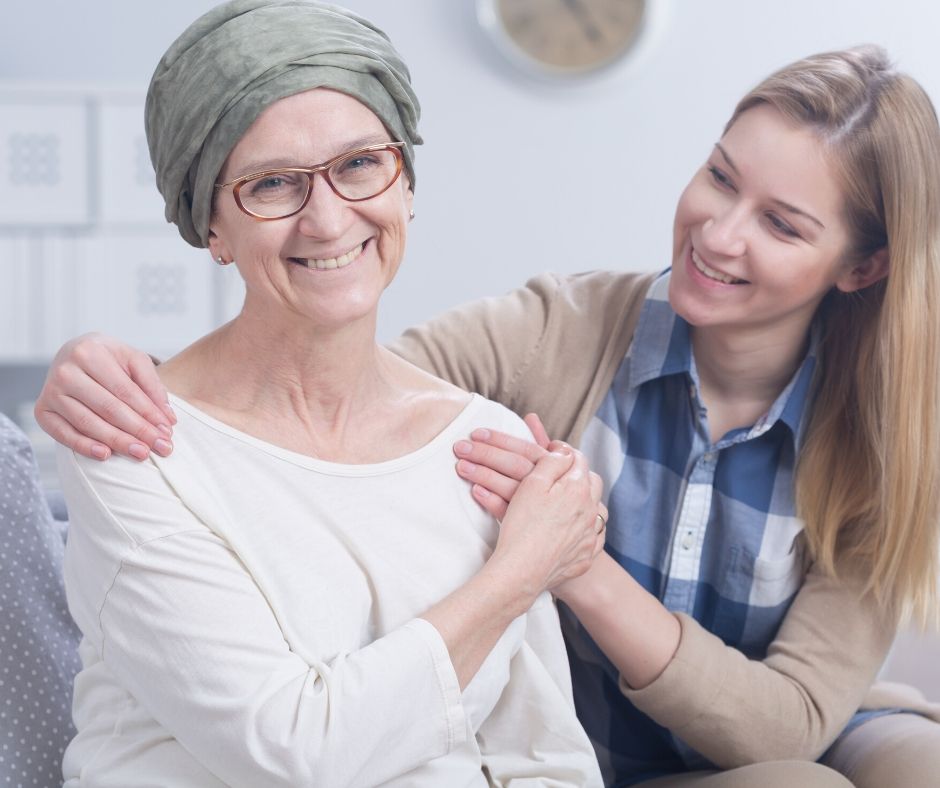 razyph/Fotolia
razyph/Fotolia
A cancer diagnosis can cause multiple feelings to surface: shock, disbelief, anger, fear, anxiety and depression. It is not uncommon for people to mentally shut down upon hearing the word “cancer.”
The fear of pain and suffering is one of the greatest fears people with cancer and their loved ones will face. For the person diagnosed, accepting the diagnosis, and figuring out what cancer will mean for them, is a challenge in and of itself. It can be difficult to feel positive and upbeat when the future is uncertain.
Effective communication can make all the difference in terms of helping the person in your life battling cancer to feel comfortable and aware that you are there for them. Below, you'll find five ways you can rephrase your statements to show care and concern for a friend or loved one with a cancer diagnosis.
1) “What can I do for you?” vs. “I am going to bring over dinner tonight for you, what are you in the mood for?”
Open-ended offers are vague, and can put the recipient on the spot. They may feel more uncomfortable if they have to specify their needs to you. Instead, make a definite, clear statement as to what you are offering to do.
2) “Did you get my call, I haven’t heard back from you yet?” vs. “Hey, I called the other day, but it looks like you were busy. I just want you to know you are in my thoughts and prayers.”
It is overwhelming to answer emails and calls when you are busy in day-to-day of life. However, someone undergoing treatment for breast cancer may feel a bit more overwhelmed due to coping with the diagnosis, treatment, keeping up with their daily life, etc. A response isn’t as important as it is for them to know you are thinking about them.
3) “My aunt had breast cancer, I can imagine what you are going through,” vs. “I watched my aunt recover from breast cancer; I wish you the best in your recovery.”
Everyone’s experience is different and extremely personal, especially with a diagnosis such as breast cancer. Telling your friend or loved one recovering from cancer that you know what they are going through, may invalidate their experience (especially if you haven’t been through it yourself). Be sure to share a positive story of recovery and wish them well. Word of encouragement are always the way to go.
4) “You’re going to be just fine,” vs. “I will be here to support you during your treatment, every step of the way.”
As mentioned above, a diagnosis such as cancer can bring anxiety due to the uncertainty of the future. Instead of making statements that may indicate false promises, let them know that you will be there throughout the entire process.
5) Remaining silent, vs. “I am sad to hear about your diagnosis. I am here whenever you need me.”
Remaining silent can alarm the person with the diagnosis, thus making them even more uncomfortable and overwhelmed than they already might be feeling. If you cannot think of something to say right away, try offering a hug or holding their hand to buy you time to find the appropriate words while comforting them.
Source:
American Cancer Society. The emotional impact of a cancer diagnosis. 23 October 2015.
http://www.cancer.org/treatment/treatmentsandsideeffects/emotionalsideeffects/copingwithcancerineverydaylife/a-message-of-hope-emotional-impact-of-cancer
Huffington Post. What to say (or not to say) to someone with breast cancer. 23 October 2015.
http://www.huffingtonpost.com/hollye-harrington-jacobs/breast-cancer-month_b_1948197.html
Reviewed October 26, 2015
by Michele Blacksberg RN
Edited by Jody Smith





Add a CommentComments
There are no comments yet. Be the first one and get the conversation started!